- Home
- slideshows
- miscellaneous
- The risk of traveling to every country in Asia, according to the US State Department
The risk of traveling to every country in Asia, according to the US State Department
Armenia – Level 1: Exercise Normal Precautions

Bahrain – Level 1: Exercise Normal Precautions
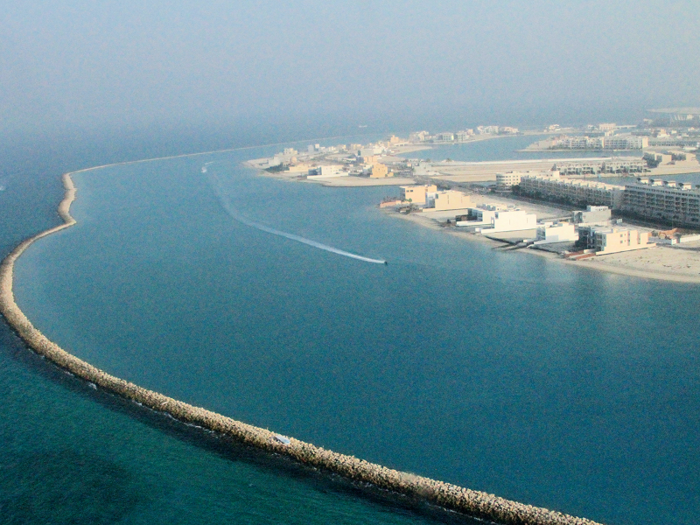
While there are no precautions for traveling to the majority of Bahrain, the US State Department has issued a warning to pilots due to the risks of flying within the Persian Gulf and the Gulf of Oman region.
Bhutan – Level 1: Exercise Normal Precautions
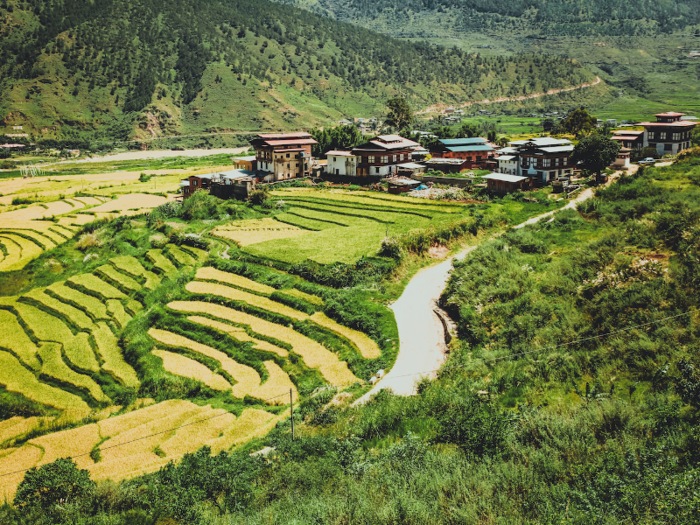
The US State Department doesn't have any alerts for Bhutan, which means "Land of the Thunder Dragon". Until 1970, visitors were not allowed to enter the country.
Brunei – Level 1: Exercise Normal Precautions

The US State Department has no warnings for the country, which became the first East Asian country to adopt strict Islamic Sharia law in 2014.
Cambodia – Level 1: Exercise Normal Precautions
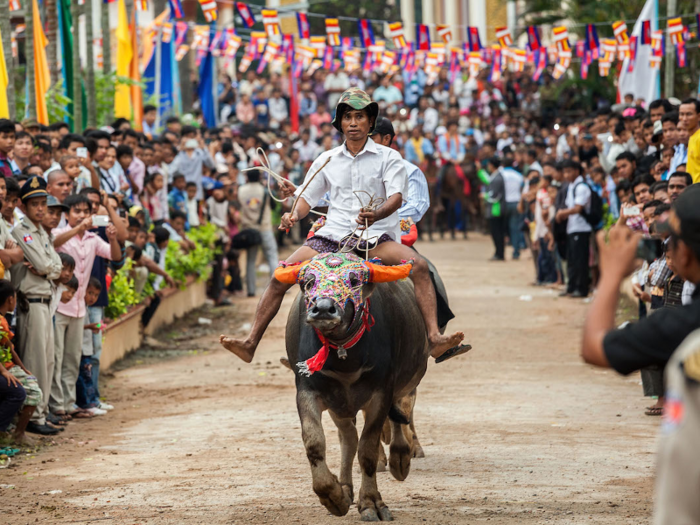
The US State Department recommends travelers exercise increased caution in Phnom Penh due to phone and bag snatchings, as well as violent crimes like sexual assault and homicide.
Land mines are also a concern in remote areas like Battambang, Banteay Meanchey, Pursat, Siem Reap, Pailin, and Kampong Thom provinces. The agency advises against touching unknown metal objects and using a local guide when walking in forests or dry rice paddies.
Cyprus – Level 1: Exercise Normal Precautions
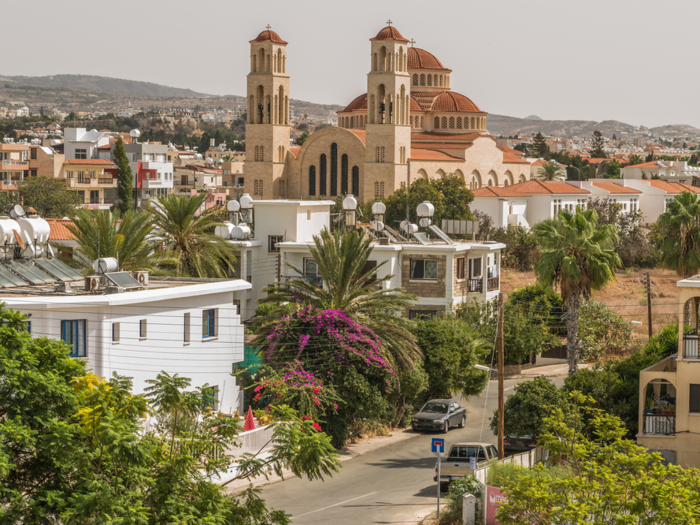
The US State Department warns travelers not to enter the United Nations buffer zone anywhere except where there are designated crossings.
Read more: 19 haunting photos Of Cyprus's frozen-in-time contested zone
Timor-Leste (East-Timor) – Level 1: Exercise Normal Precautions
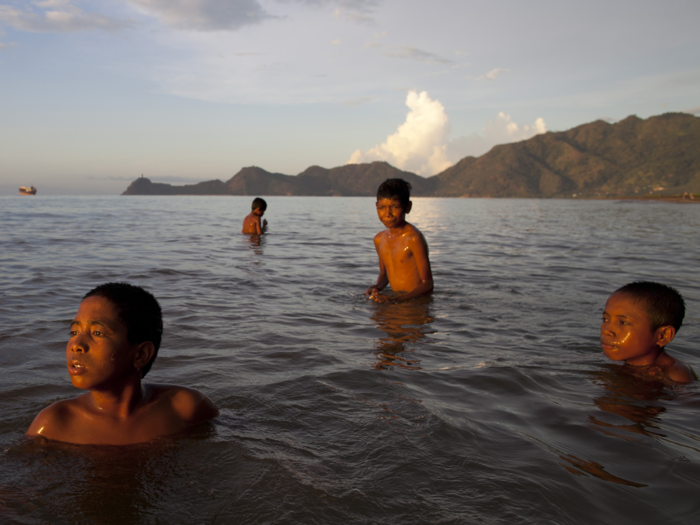
The US State Department designates East-Timor as a low risk destination. But it did put out an alert in May 2019 after a crocodile attack caused a death, and said to exercise caution when swimming, snorkeling, and fishing.
Georgia – Level 1: Exercise Normal Precautions
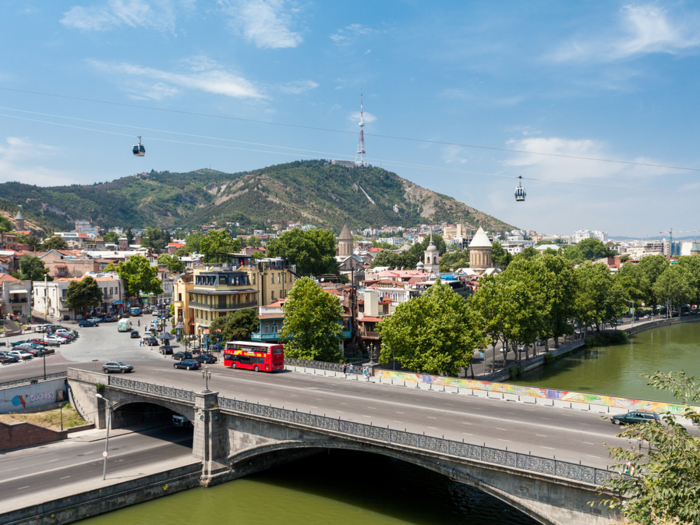
Some areas have increased risk in Georgia, the US State Department warns. While the country overall is designated Level 1, South Ossetia and Abkhazia sit at Level 4, which means do not travel.
Russian troops and border guards occupy these areas, and the agency warns that the precise borders are hard to identify. Land mines and violent attacks are both threats in the area, and US government employees aren't allowed to travel there. Travelers entering these territories can be arrested, imprisoned, and fined.
Japan – Level 1: Exercise Normal Precautions
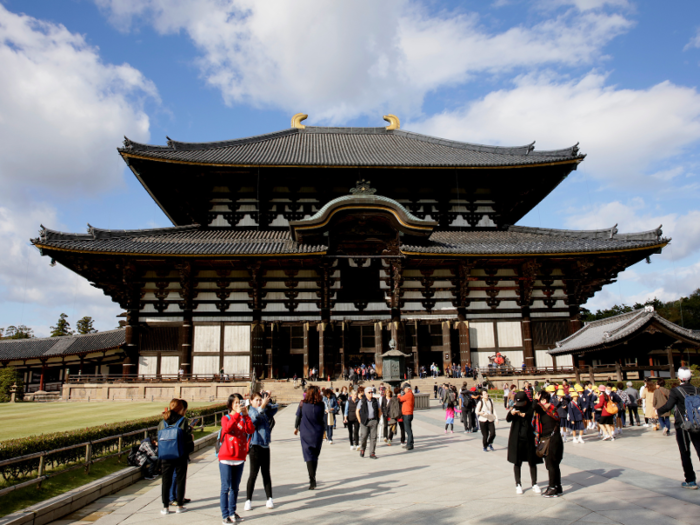
The US State Department doesn't have any alerts for this country, which has the world's third largest economy.
Kazakhstan – Level 1: Exercise Normal Precautions
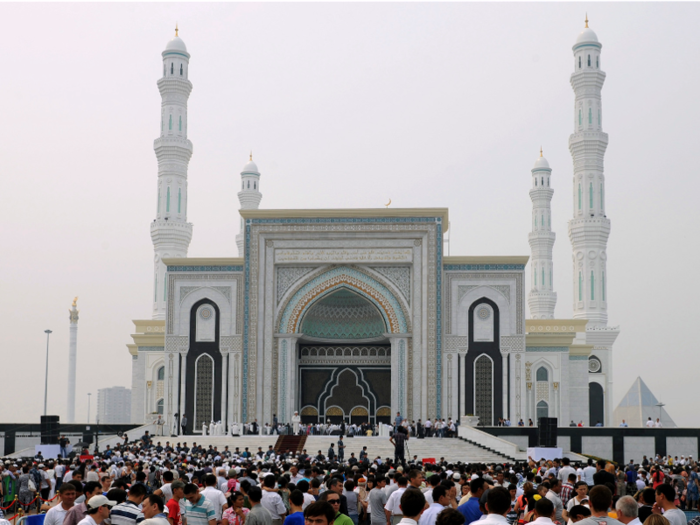
The US State Department has no warnings for the country, which is the same size as all of Western Europe.
Kuwait – Level 1: Exercise Normal Precautions
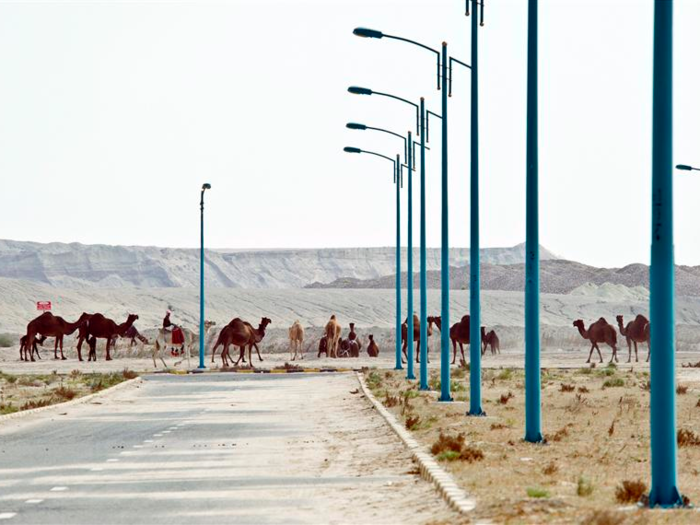
Travelers are warned not to go "off the beaten path" in Kuwait's desert region and certain beaches north of the Mutla'a ridge, because of the danger from unexploded weapons left over from the Gulf War.
The US State Department also identifies Al Jahra as a high crime city, and Jeleeb Al-Shuyoukh near the Kuwait International Airport as a high crime neighbourhood.
Kyrgyzstan – Level 1: Exercise Normal Precautions
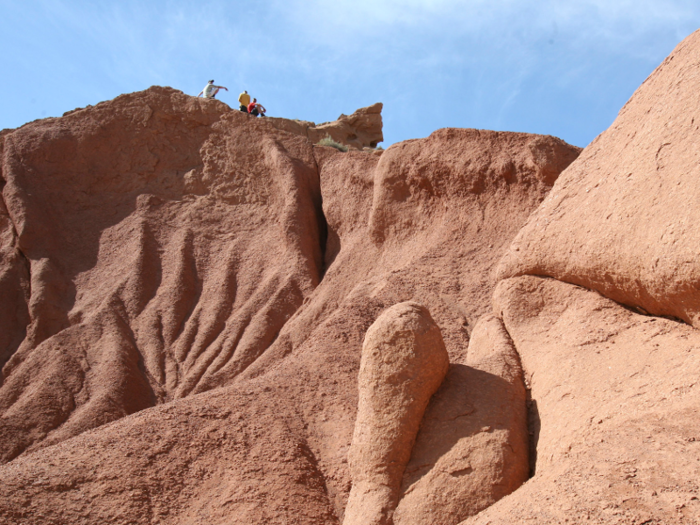
The US State Department has no warnings for the country that became independent with the collapse of the Soviet Union in 1991.
Laos – Level 1: Exercise Normal Precautions
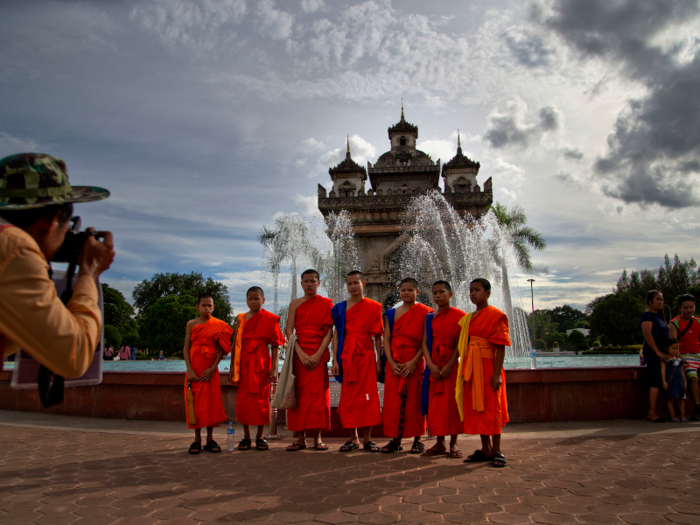
Overall, Laos is at the lower end of danger, but the US State Department points out that some areas have increased risk, including Xiasomboun Province, because of violence and civil unrest. Along the border with Burma, bandits, drug traffickers, groups opposed to the government, and other criminals are in operation.
Travelers are also warned to be wary of unexploded bombs from the Indochina War in the provinces of Savannakhet, Xieng Khouang, Saravane, Khammouane, Sekong, Champassak, Houaphan, Attapeu, Luang Prabang, Vientiane, and along Route 7.
Malaysia – Level 1: Exercise Normal Precautions
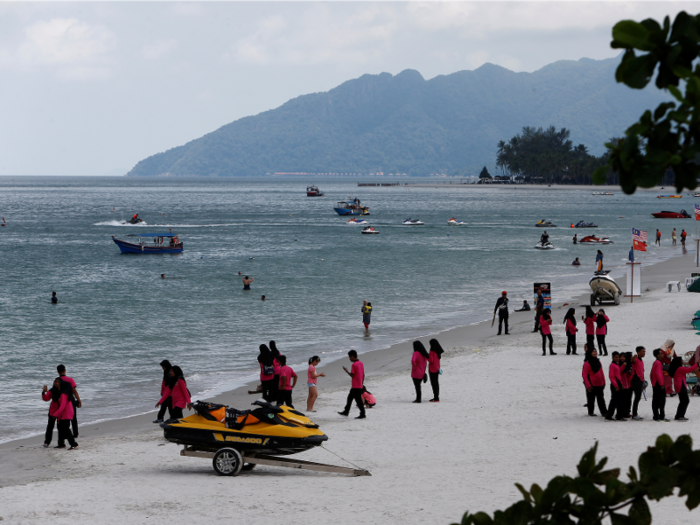
Malaysia is mostly low risk, according to the US State Department, except for the eastern area of Sabah State due to threats of kidnapping for ransom. Both criminal and terrorist groups target people at coastal resorts, island resorts, and boats ferrying between islands.
Read more: 35 countries where the US State Department is warning Americans they could get kidnapped
Mongolia – Level 1: Exercise Normal Precautions
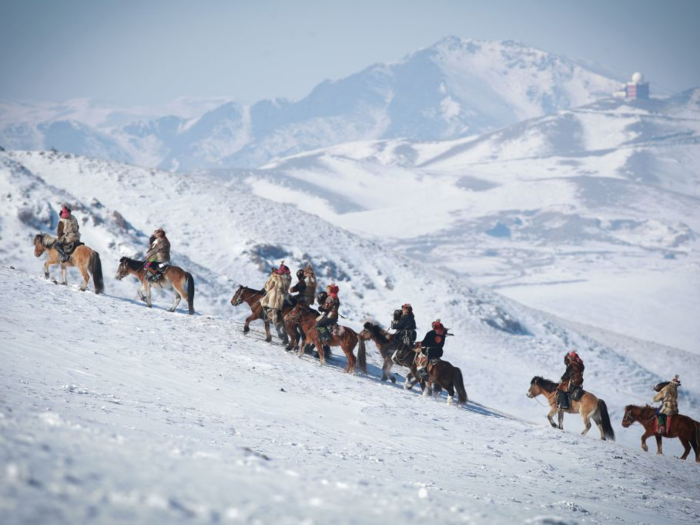
The US State Department has no warnings for this country, where nomads make up 40% of the workforce.
Oman – Level 1: Exercise Normal Precautions
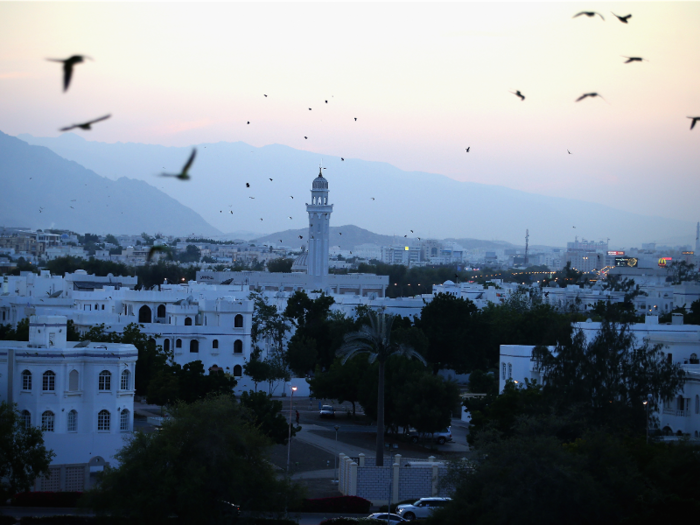
The US State Department's only warning for Oman is for the border it shares with Yemen. Terrorism and violence continue in Yemen, and those who attempt to cross the border may be detained by Omani authorities.
Qatar – Level 1: Exercise Normal Precautions
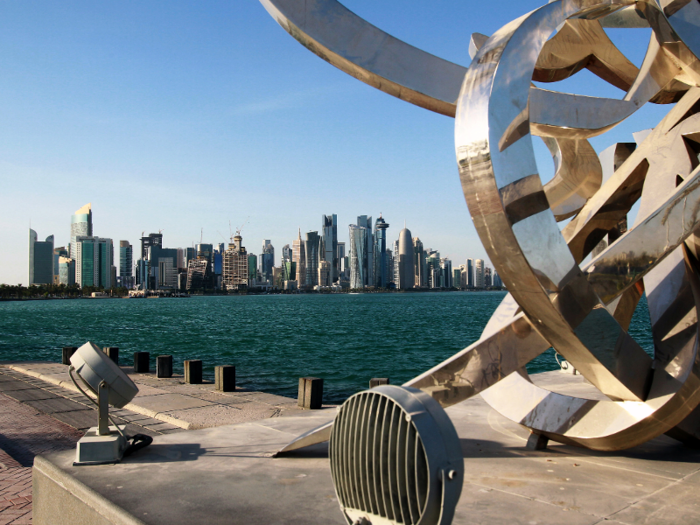
Other than a warning for airmen flying over the Persian Gulf and Gulf of Oman, the US State Department has no warnings for Qatar.
Singapore – Level 1: Exercise Normal Precautions
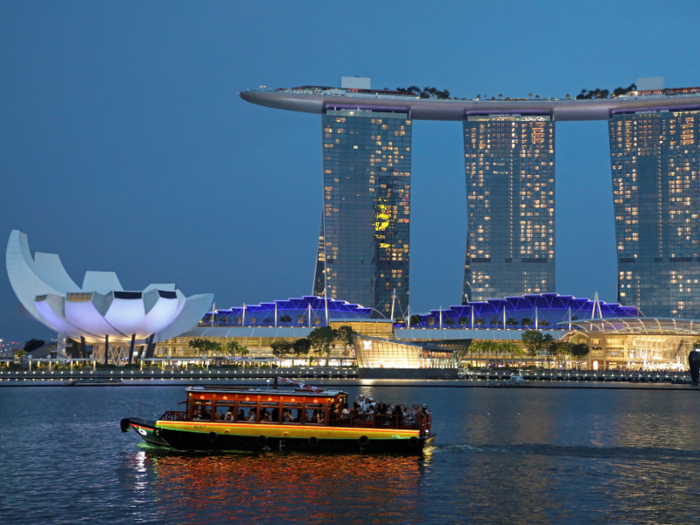
The US State Department has no warnings for the city-state that holds 5.3 million people in 255 square miles.
South Korea – Level 1: Exercise Normal Precautions
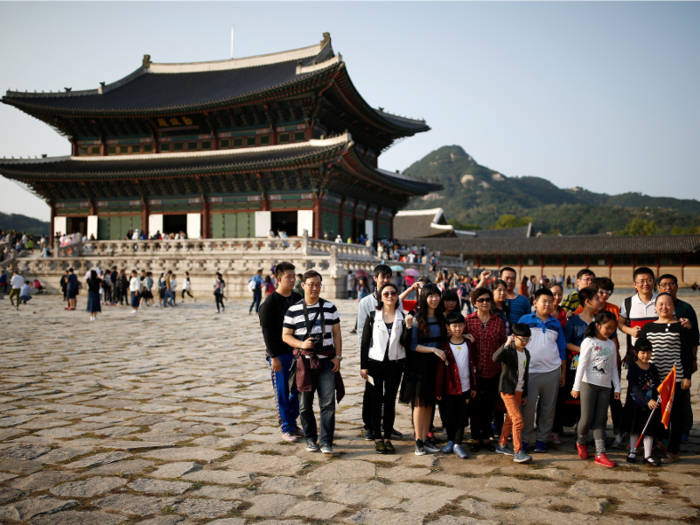
The US State Department has no warnings for the country that is home to Samsung and Hyundai.
Thailand – Level 1: Exercise Normal Precautions
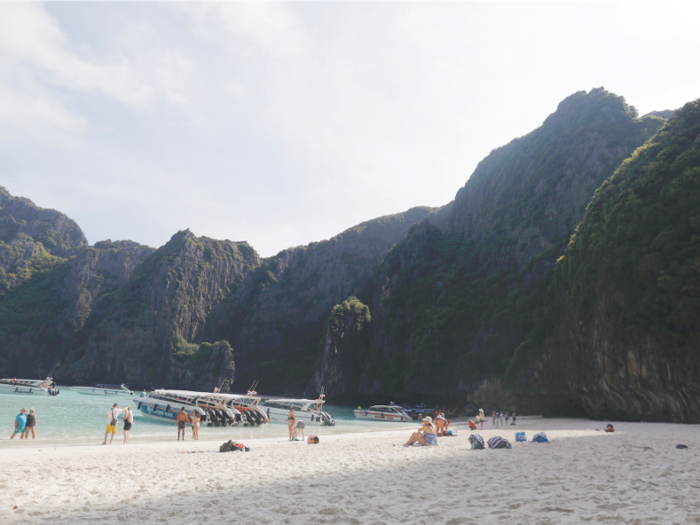
Some areas in Thailand have increased risk and the US State Department warns travelers to reconsider Yala, Pattani, Narathiwat, and Songkhla provinces due to civil unrest.
Martial law is in force in this region. Although the violence in these areas is mostly directed at the Thai government, the agency warns that US citizens are at risk of death or injury due to the indiscriminate nature of the attacks.
Turkmenistan – Level 1: Exercise Normal Precautions
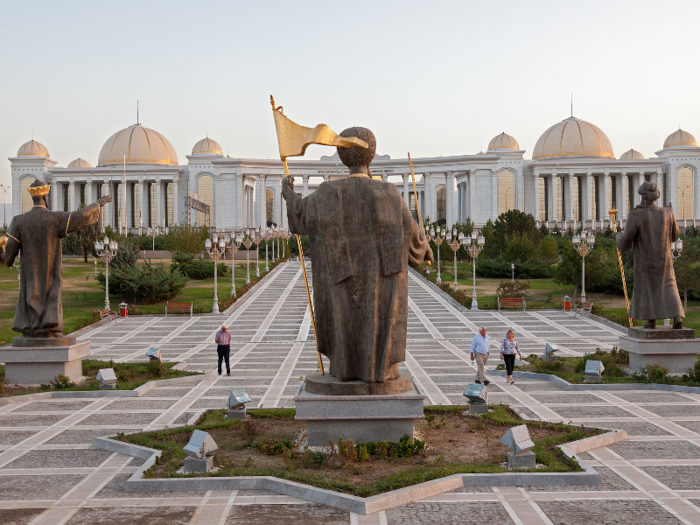
The US State Department has no travel warnings for this country, which produces roughly 18 trillion gallons of natural gas each year.
United Arab Emirates – Level 1: Exercise Normal Precautions

Other than risks to civil aviation within the Persian Gulf and Gulf of Oman, the US State Department has no warnings for the country that used to rely on fishing and pearls but has since boomed due to the discovery of oil in the 1950s.
However, many local customs and laws dictate how you should dress, drink, and post on social media to avoid fines or even jail time.
Uzbekistan – Level 1: Exercise Normal Precautions
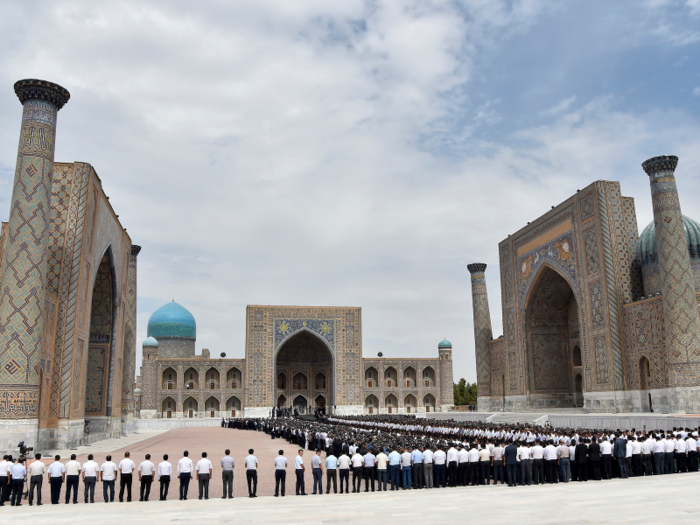
The US State Department has no warnings for the country, which was once at the heart of the ancient Silk Road trade route.
Vietnam – Level 1: Exercise Normal Precautions
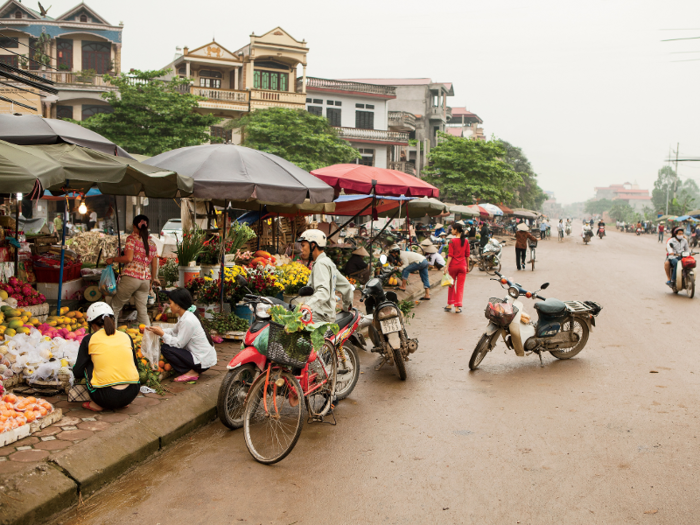
The US State Department has no warnings for this country that has 97 million people.
Azerbaijan – Level 2: Exercise Increased Caution
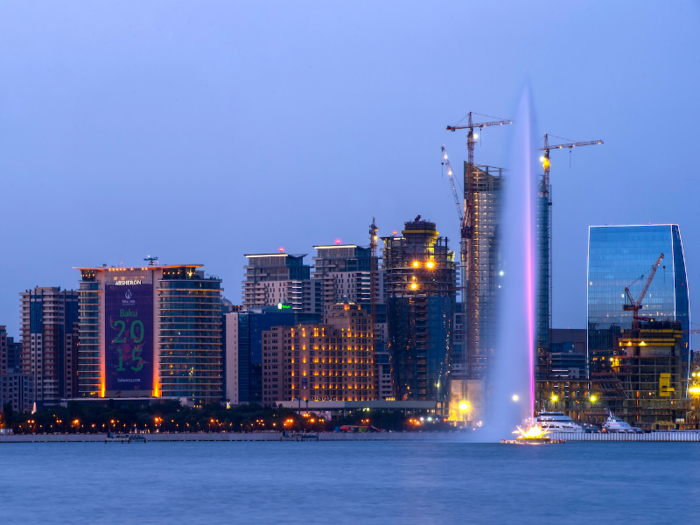
The US State Department advises tourists to exercise increased caution in Azerbaijan due to terrorism.
The advisory says terrorist attacks have little warning and target a variety of public spaces, including, but not limited to, transportation hubs, markets, malls, hotels, clubs, restaurants, and airports. It also advises against traveling to the Nagorno-Karabakh region because of armed conflict.
If tourists do travel here, the agency advises them to avoid demonstrations, watch local media for breaking events, and review the Crime and Safety Report.
Bangladesh – Level 2: Exercise Increased Caution
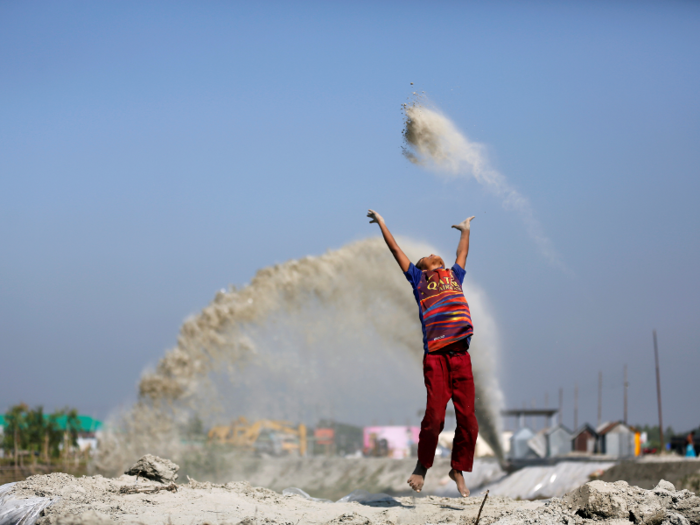
The US State Department warns tourists to be cautious due to terrorism and crime.
Tourists are advised to reconsider traveling to Dhaka because of crime and terrorism. The agency warns that crime rates dramatically increase at night, and can be either organized or opportunistic, and commonly include fraud, theft, robbery, carjacking, rape, assault and burglary.
Southeast Bangladesh is also one to reconsider, including Chittagong Hill Tracts, due to kidnapping, violent crime, and terrorism. Demonstrations, blockades, and violent clashes are likely.
If tourists do decide to travel to Bangladesh they're advised to avoid demonstrations, not to resist robberies, not to travel on foot, motorcycle, or any other uncovered means, and to enroll in the Smart Traveler Enrollment Program.
China – Level 2: Exercise Increased Caution
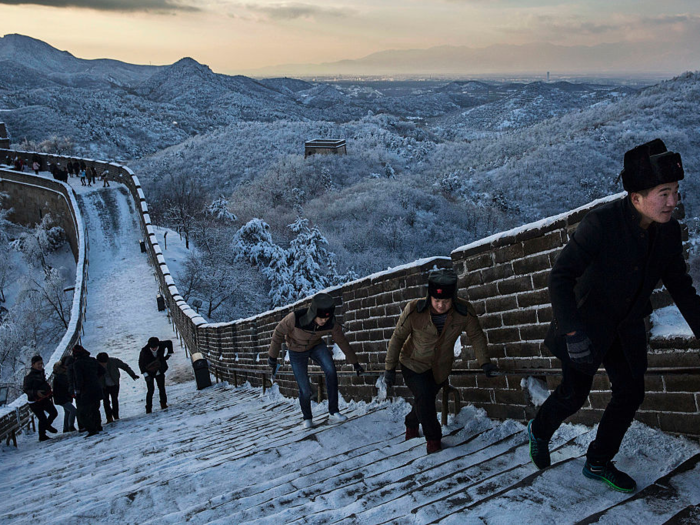
The arbitrary enforcement of local laws, as well as special restrictions on dual US Chinese nationals, has the US State Department advising exercising increased caution.
Chinese authorities use "exit bans" to keep US citizens in China, sometimes for years. These bans are used to compel US citizens to partipate in government investigations, lure individuals back to China from abroad, and aid in resolving civil disputes. Once detained, US citizens may not have access to the consulate, may be detained for long periods of time, and could face prolonged interrogations.
Since China doesn't recognize dual nationality, anyone of Chinese heritage or with US-Chinese citizenship could face extra scrutiny.
Travelers are advised to keep passports and visas on them at all times, and if detained to ask for the US Embassy or nearest consulate to be notified immediately.
India – Level 2: Exercise Increased Caution
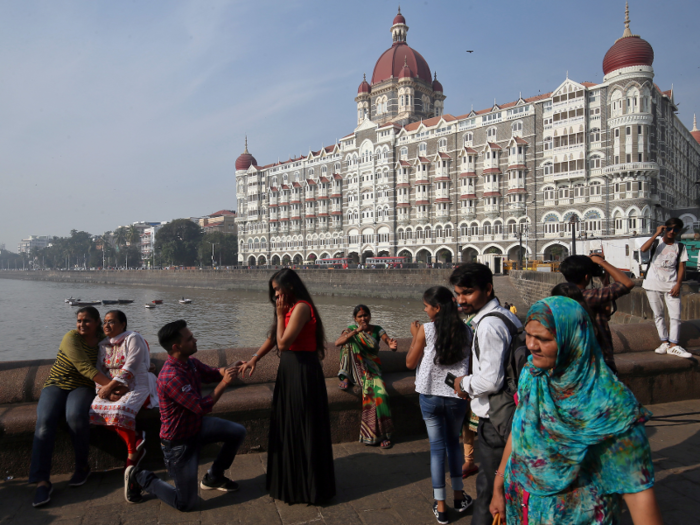
India has increased risk for travelers due to crime and terrorism, the US State Department warns. Travelers are told not to travel to Jammu and Kashmir, because of terrorism or violent civil unrest. Sporadic violence also takes place along the Line of Control between India and Pakistan, and in tourist destinations in the Kashmir Valley.
In the northeast, ethnic insurgent groups are known to bomb public transportation systems, the agency warns. While in central and east India, Maoist extremist groups frequently attack local police, paramilitary and government officials. Terrorists may attack with little or no warning.
Indian authorities report rape as one of its fastest growing crimes. Sexual assaults have occurred at tourist sites and visitors, particularly women, are advised not to travel alone.
Indonesia – Level 2: Exercise Increased Caution

Terrorism and natural disasters, such as earthquakes, tsunamis, and volcanic eruptions, have led the US State Department to warn travelers to exercise increased caution in Indonesia.
Those planning to visit central Sulawesi and Papua are also advised to reconsider due to civil unrest causing shootings and violent demonstrations, which could result in US citizens being injured or killed.
Israel, The West Bank, and Gaza – Level 2: Exercise Increased Caution
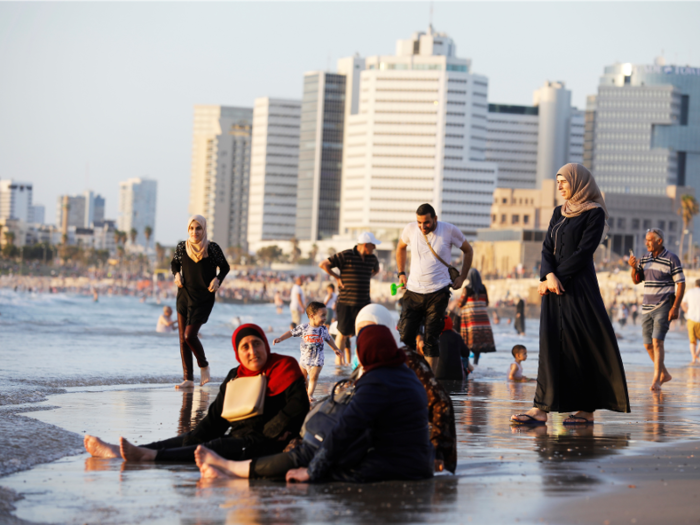
According to the US State Department, terrorism is possible throughout Israel and Palestine, and the three riskiest places to visit are Jerusalem, the West Bank, and Gaza.
The agency warns that Jerusalem and the West Bank have violent clashes, protests, and terror attacks, while Gaza is run by Hamas, a US-designated terrorist organization, and security within Gaza, and on its borders, is dangerous and volatile.
If people do travel to Israel, they're advised to maintain situational awareness and exercise caution, especially at checkpoints and places with significant security forces.
Jordan – Level 2: Exercise Increased Caution
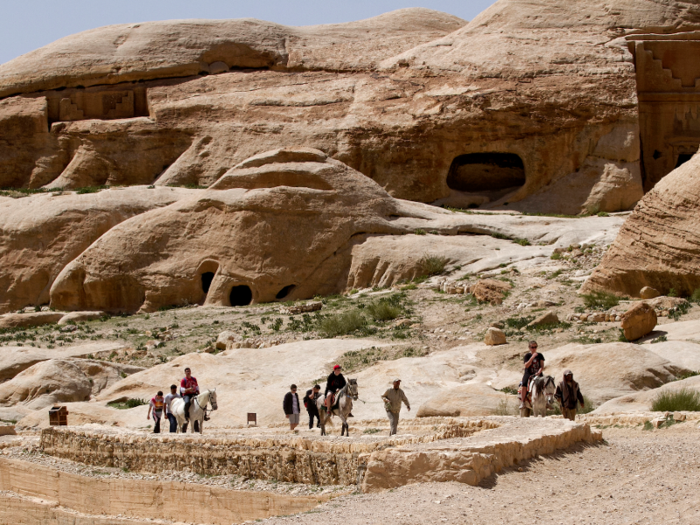
The US State Department recommends that increased caution is necessary in Jordan due to terrorism and armed conflict. The agency warns against visiting Jordan's border with Syria because of the possibility of violence. If people do go to Jordan, they are advised to monitor local media, avoid protests, and stay alert of their surroundings — especially in tourist areas.
Maldives – Level 2: Exercise Increased Caution

Terrorism in the Maldives has led the US State Department to advise exercising increased caution due to terrorism. One factor that makes it more dangerous is that attacks may occur on remote islands, which lengthens authorities' response time.
Burma (Myanmar) – Level 2: Exercise Increased Caution
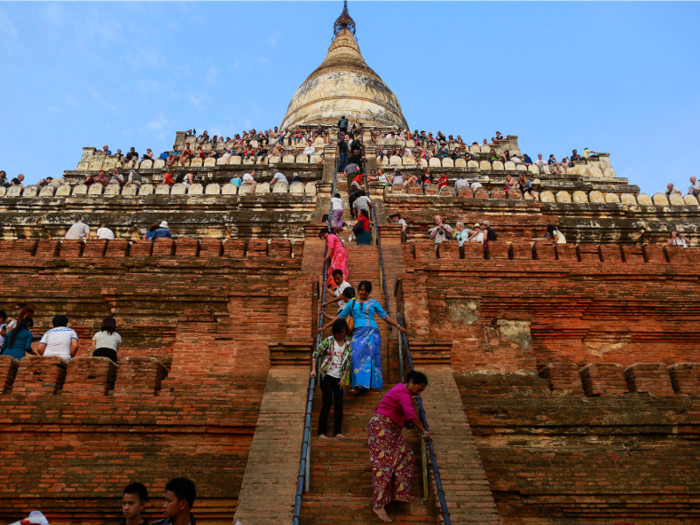
While Burma is listed as a Level 2 overall, many areas are actually designated Level 3 or 4. Civil unrest and armed conflict are the two biggest threats to US citizens throughout the country.
The US State Department advises against traveling to certain towns in the states of Rakhine, Chin, Kachin, Kayin and Shan, which it outlines in full on the advisory.
Land mines and unexploded weaponry in Northern Shan State, and parts of Kachin, Rakhine, and Chin states are also highlighted, because foreign tourists have been injured by them. They have no marks nor identification.
Nepal – Level 2: Exercise Increased Caution

The US State Department advises travelers to exercise increased caution due to the potential for isolated political violence.
If people travel to Nepal, they're advised against traveling alone, to avoid demonstrations, and to be aware that infrastructure, services, and medical assistance may not be up to US standards.
Philippines – Level 2: Exercise Increased Caution
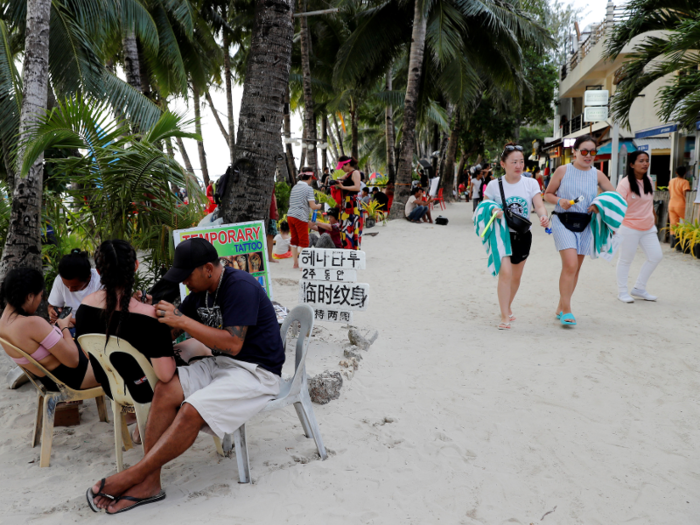
Crime, terrorism, civil unrest, a measles outbreak, and kidnapping are reasons why the US State Department advises being increasingly cautious in the Philippines.
US citizens are told not to travel to Marawi City, Minadanao, or the Sulu Archipelago due to crime, bombings, civil unrest, and kidnappings on land and sea. The Philippine government has declared "a state of national emergency on account of lawless violence" for Mindanao because of conflict between the remnants of terrorist groups and security forces.
Travelers should also be aware of measle outbreaks. Deaths have been reported in the National Capital Region, Central Luzon, and Davao.
Saudi Arabia – Level 2: Exercise Increased Caution
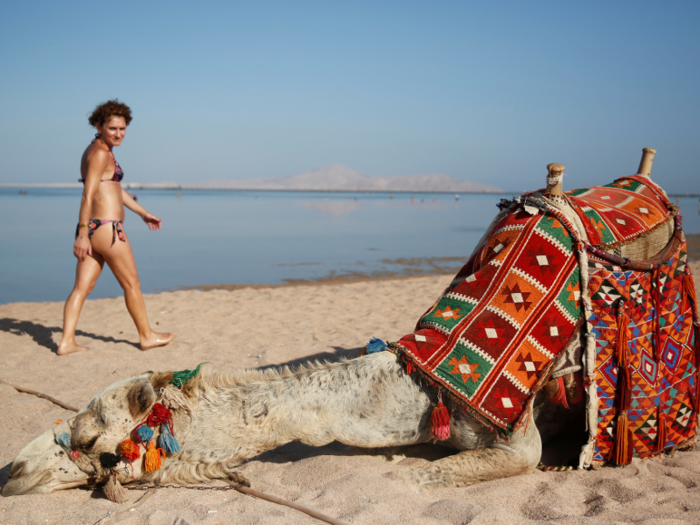
The US State Department advises travelers to exercise increased caution throughout Saudi Arabia, due to terrorism and threats of missile or drone attacks on civilians, and warns Americans not to travel within 50 miles of the Yemeni border.
The government of Yemen and Houthi rebel forces are locked in a civil war, which many see as a proxy war between Saudi Arabia and Iran. The US government warns that it has limited ability to provide emergency services near the Saudi-Yemen border — including the cities of Jizan, Najran, Qatif, and Awamiyah — where civilians are at risk and fighting has occurred on multiple occasions.
Sri Lanka – Level 2: Exercise Increased Caution
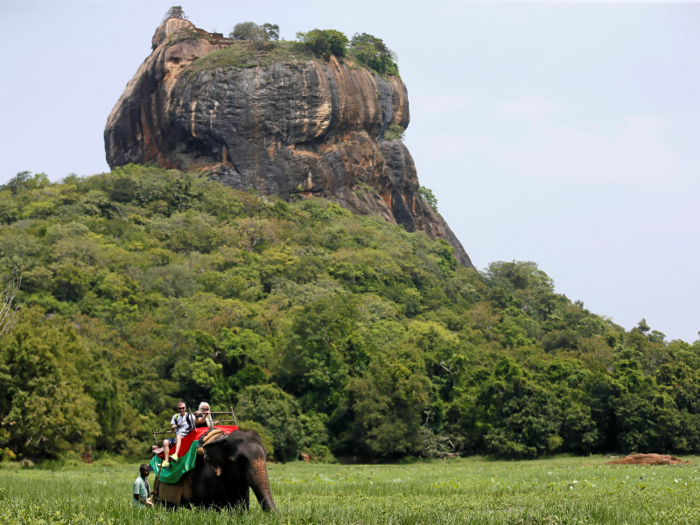
The US State Department advises exercising increased caution in Sri Lanka due to terrorism.
Tourist locations such as transportation hubs, markets, malls, hotels, clubs, restaurants, places of worship, parks, events, airports, and hospitals are all possible terrorist targets.
In June 2019, the department did lift an ordered departure status for school-age children of US government employees as well as for non-emergency US government employees and family members.
Tajikistan – Level 2: Exercise Increased Caution
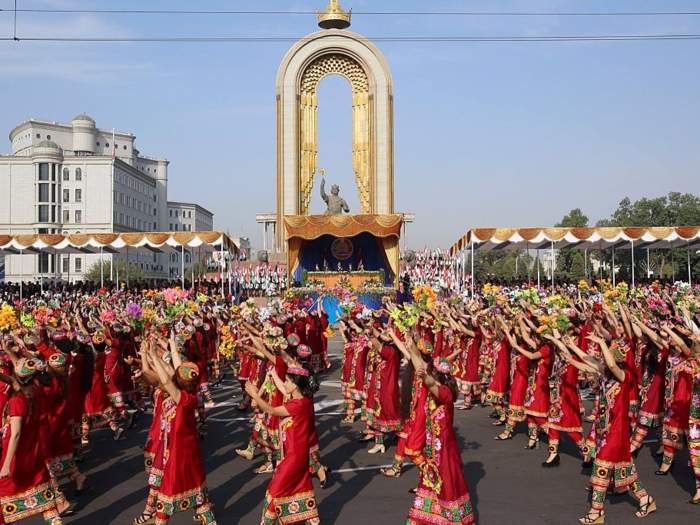
The US State Department warns travelers to exercise increased caution due to terrorism in Tajikistan. Bicyclists have been targeted by terrorists, and other typical populated places are also possible targets. In June 2018, two US citizens were killed in a terrorist attack in Danghara province.
The advisory recommends avoiding large crowds and public transportation, and making sure social media settings are on private if documenting travel.
Lebanon – Level 3: Reconsider Travel
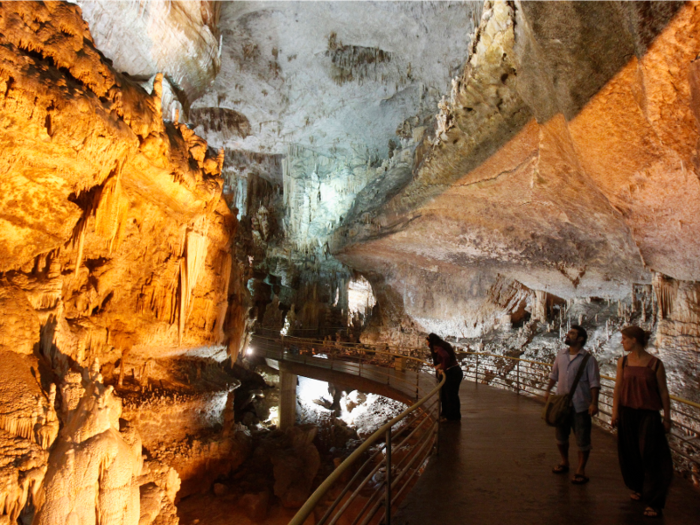
The US State Department warns that crime, terrorism, kidnapping, and armed conflict are possible throughout the country, and recommends not traveling to refugee settlements, or Lebanon's borders with Syria and Israel due to armed conflict.
The advisory says: "The Lebanese government cannot guarantee the protection of US citizens against sudden outbreaks of violence. Family, neighborhood, or sectarian disputes can escalate quickly and can lead to gunfire or other violence with no warning. Armed clashes have occurred along the Lebanese borders, in Beirut, and in refugee settlements."
Pakistan – Level 3: Reconsider Travel

The US State Department recommends reconsidering travel to Pakistan in general and also advises people not to travel to four areas because of militant or terrorist operations, or the possibility of kidnappings: Balochistan Province, KPK Province, Azad Kashmir, and the Pakistan-India border.
In Pakistan, large-scale terrorist attacks have resulted in hundreds of casualties. In KPK, the attacks have not discriminated between officials and civilians, according to the agency.
If people do travel to Pakistan, they're advised to vary their timing and travel routes, especially for routine trips, and to minimize the duration of trips to markets, restaurants, and government and military institutions.
Turkey – Level 3: Reconsider Travel
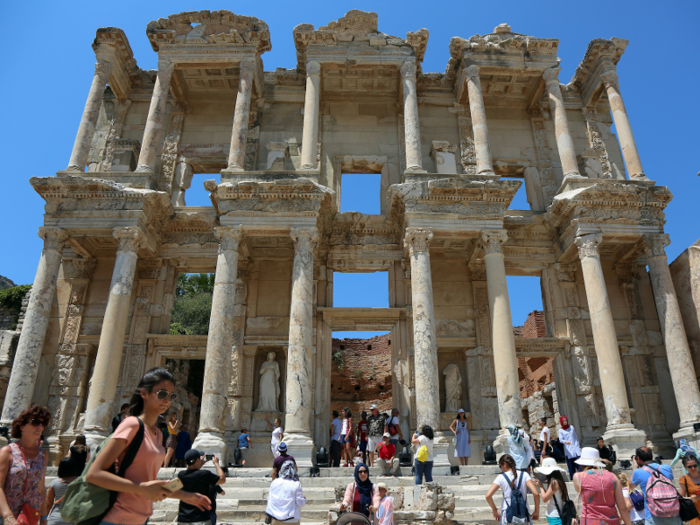
The US State Department recommends travelers reconsider traveling to Turkey due to terrorism and arbitrary detentions, and to not travel to areas near the Syria and Iraq borders due to terrorism and kidnapping.
In Turkey, security forces have detained tens of thousands of people, including US citizens, for alleged affiliations with terrorist organizations, based on little evidence, the advisory says. US citizens have also been subject to travel bans that prevent departure from Turkey.
If people do go to Turkey, they're advised to stay at hotels with identifiable security measures and avoid demonstrations and crowds.
Afghanistan – Level 4: Do Not Travel
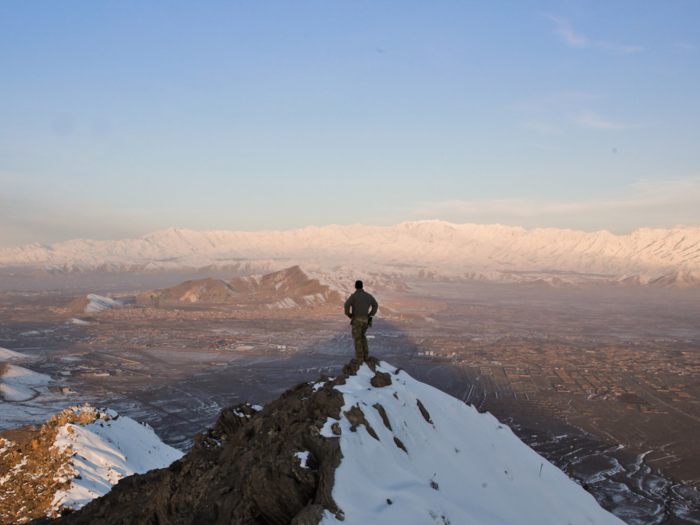
The US State Department designates Afghanistan at its highest advisory level, warning Americans not to travel there because of crime, terrorism, unrest, kidnapping, and armed conflict.
The agency advises that all of Afghanistan is unsafe for a plethora of reasons: kidnappings, hostage taking, suicide bombings, widespread military operations, landmines, and terrorist attacks — including attacks using vehicle-borne, magnetic, or other improvised explosive devices, suicide vests, and grenades.
The attacks occur with little warning and have targeted transport hubs, markets, shopping areas, restaurants, hotels, universities, airports, and other tourist locations.
Iran – Level 4: Do Not Travel
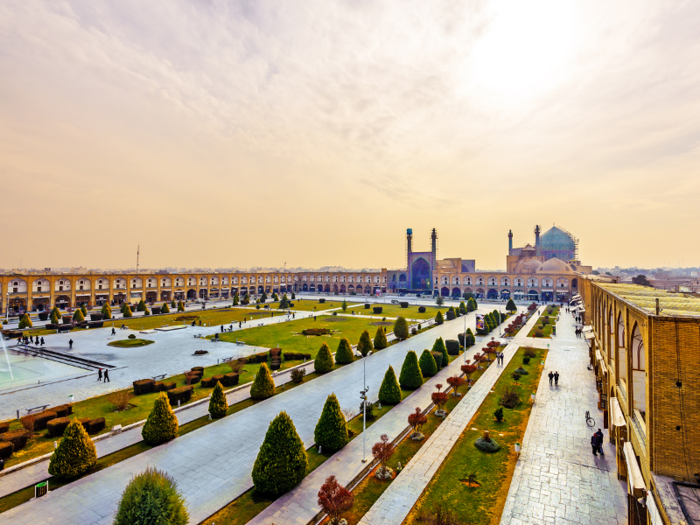
The US State Department warns against visiting Iran, due to the risk of armed conflict, terrorism, crime, or being kidnapped, arrested, and detained. Iran authorities are detaining students, journalists, business travelers, and academics, on charges including espionage and national security threats.
If people are set on going to Iran, they are advised to discuss a plan with loved ones regarding custody of children, pets, property, and funeral wishes.
Iraq - Level 4: Do Not Travel
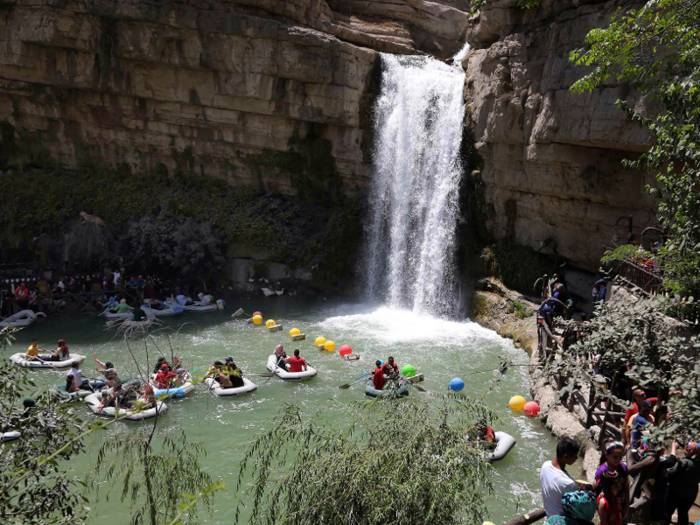
High risk from terrorism, kidnapping, and armed conflicts have led the US State Department to recommend not to travel to Iraq. Numerous terrorist and insurgent groups are active and attack civilians.
US citizens are also told not to travel through Iraq to get to Syria to participate in armed conflict. The Kurdistan government will imprison those caught trying to cross the border with sentences up to 10 years.
North Korea – Level 4: Do Not Travel
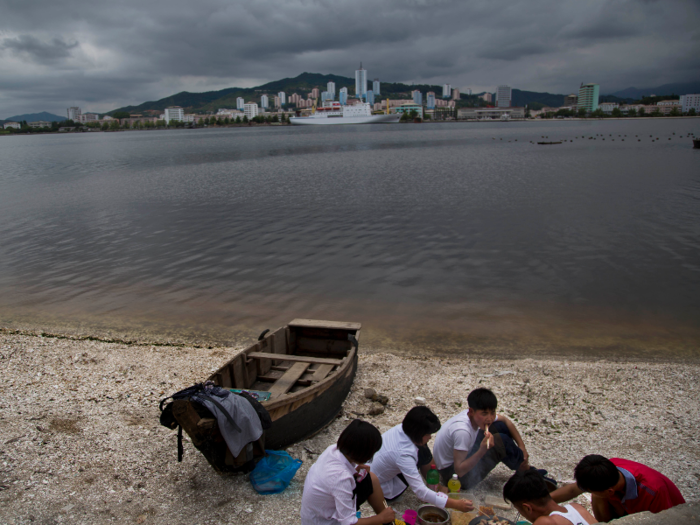
The US State Department warns Americans that they can't travel to North Korea unless they have a special validation, and there is a high risk of arrest and long-term detention. The US government is unable to provide emergency services to US citizens in North Korea.
If people decide to go, the agency advises drafting a will and designating insurance beneficiaries or power of attorney.
Syria – Level 4: Do Not Travel
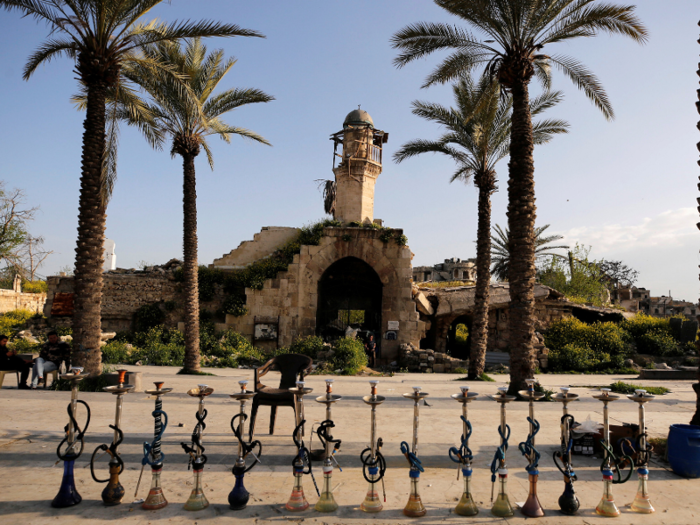
The US State Department advises people not to travel to Syria, adding that no part of Syria is safe from violence. Kidnappings, terrorism, chemical warfare, shelling, and aerial bombardment pose high risk of death or serious injury.
The US embassy in Damascus has not been operational since 2012, so the Czech Republic serves as the US's protecting power in Syria, but the services they can provide are extremely limited. The agency warns private citizens against traveling to Syria to engage in armed conflict because of the high risk of being kidnapped, injured or dying, and because fighting or providing support for terrorist organizations is a crime and can result in prison time and fines.
If people do go to Syria, they're advised to sort out all of their affairs and the appropriate paperwork before they go.
Yemen – Level 4: Do Not Travel
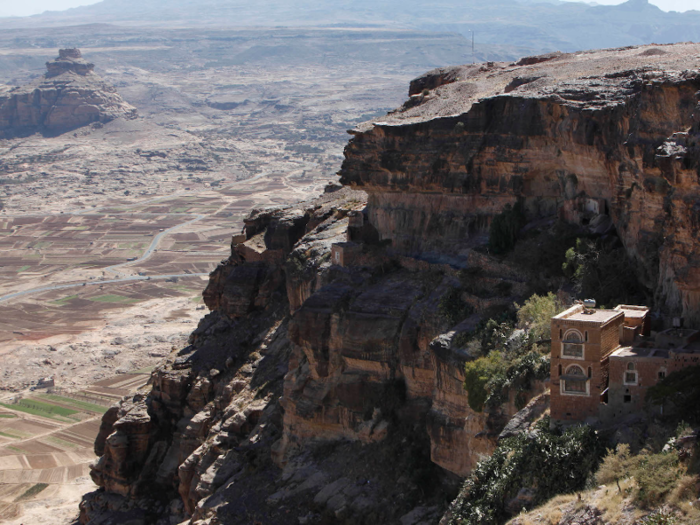
The US State Department warns not to travel to Yemen, because of terrorism, civil unrest, health risks, kidnapping, and armed conflict. The US embassy ceased operations in the country in 2015.
"No part of Yemen is immune to violence," the advisory warns. Military conflict has caused significant destruction of infrastructure, housing, schools, medical facilities, and utilities, limiting supplies of water, electricity and medicine. On top of this, terrorism attacks continue and there is a threat of kidnapping by terrorists, criminals, or non-government actors.
Yemen also has the world's largest cholera outbreak, which is throughout the entire country.
If people do travel to Yemen, they're advised to prepare the appropriate paperwork before leaving, as well as establishing a security plan or consulting with professional security firms.
Popular Right Now
Popular Keywords
Advertisement